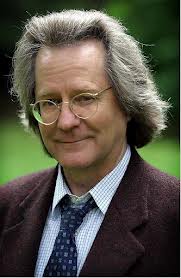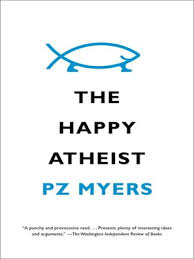Writers need to have a thick skin when it comes to receiving criticism. Personally, I value every review that any reader has posted on Amazon, whether positive or negative. Of course, positive reviews help sell books. More importantly, negative reviews, if the author listens to his or her audience, can help make future books better. For if we do not learn from our mistakes, we will be doomed to repeat them. My philosophy is when anyone takes the time and goes to the trouble of writing a review of something I've written, I tend to pay attention, even more so to critique than praise. As an example, even though my novel Secondhand Sight won a Readers' Favorite gold medal for Fiction/Horror, I thought the comments on Amazon were very fair criticisms when some readers suggested the sections that described tennis activities intended to provide local color were too long. Those lengthy sections really only served as plot devices that got the protagonist out of his house and could have been achieved with at least a thousand fewer words, to be perfectly honest. It was Shakespeare who, as Polonius in Hamlet, famously said, "...brevity is the soul of wit." As a result of listening to those readers, in my novel titled Premonition that followed Secondhand Sight, my editors and I worked even harder to trim every scrap of unnecessary fat from the manuscript. Our goal was to establish a steady pace that never lagged, increasing speed as we moved from start to finish, which I hope to have accomplished, thanks to the feedback from readers. Once again, we will … [Read more...]
The probability problem
The fallacy in Paley's famous Watchmaker analogy was not that the Watchmaker was blind, as Richard Dawkins has suggested. The problem is that Paley's analogy assumed the rock could have always existed in an eternal universe, whereas if physicists are correct and the Big Bang created our universe, we can safely assume the rock has not. No one is certain why a prehistoric civilization built a monument that we call Stonehenge, but we know this peculiar rock formation exists, because we've all seen pictures of it and can easily visit the physical location. Was it a temple to worship the sun? A giant calendar? An ancient medical center? Nobody knows who built Stonehenge, or why it was constructed. We can rather safely assume that someone built it, though. Or can we? What makes us so certain that Stonehenge isn't merely a natural rock formation somehow created miraculously by the vagaries of Time? Because if you listen to Richard Dawkins explain the probability problems associated with our existential questions, he seems to be saying that as long as something is theoretically possible, it doesn't really matter how improbable the event in question might be. What makes us so sure that Stonehenge is not a naturally occurring rock formation? Well, it is extremely unlikely, no matter well how you craft any alternate explanation. The rocks that form Stonehenge appear to have been quarried from a location several miles away. The rocks that form Stonehenge shouldn't be where they are -- unless humans put them there. The rocks shouldn't be stacked and apparently … [Read more...]
Lacking the courage of one’s convictions
Obviously, Professor A. C. Grayling must be a very busy man. I don't doubt that teaching, writing, and interviews keeps him quite busy. However, I confess that I am finding it very difficult to believe that his schedule has been completely booked for the rest of his life. I simply can't understand why he can't carve out a few hours of spare time to burst my bubble of egotistical pride, by demonstrating the intellectual superiority of his atheistic humanism once and for all. After reading his book and blogging about it twice because I appreciated the skill of its authorship, I grew bold and wrote the good professor to propose a written debate that would pit his GOD Argument versus my Counterargument for God. You see, I paid attention when I read his book. I believe that already know much of what the professor might say, and it gave me the confidence to approach him. I am quite convinced that my counterargument can defeat his argument, even though my book was originally intended to rebut The God Delusion of Richard Dawkins. So when Grayling's first assistant asked me to define the parameters for the debate I proposed admittedly, my hopes rose. My reply suggested that Professor Grayling could set the debate parameters for debate himself. My offer said that we could schedule our discussion for any future exchange at his convenience. So you might imagine my surprise when his second assistant replied and said that it would never be convenient. Not even sometime in late 2016? I asked. Nope. Never, as in never, ever. Please forgive me for stating … [Read more...]
A. C. Grayling and The GOD Argument
I've enjoyed reading The GOD Argument: The Case Against Religion and for Humanism, in spite of the fact I disagreed with much of what author A. C. Grayling wrote. As I asserted in my earlier blog about the Scopes Monkey Trial, Professor Grayling is an excellent writer. At times, his book forced me to exercise the little grey cells in my head quite vigorously. For example, at first I couldn't figure out why Professor Grayling described the problem as 'logically impossible' when he wrote: Consider the sentence, 'I can trisect a Euclidean angle using only ruler and compass.' This is a grammatical and even in one sense an intelligible sentence, but it claims something that is logically impossible to do -- and therefore to think. I must confess that relatively simple sentence initially befuddled me. After all, I could envision drawing a two-dimensional right angle with a horizontal line intersecting a vertical line at 90 degrees, and then trisecting it at 30 and 60 degrees rather easily with a compass. However, I sensed that I was missing something that must be obvious and could not be understanding the problem correctly, if what Professor Grayling wrote was true. And my instincts were correct. It turned out the operative word in that deceptively simple sentence was 'Euclidean' -- apparently referring to a three-dimensional angle, like what you would find in the corner of a room formed where two walls meet. Then I realized what Grayling must have meant, and he's right: the task is impossible to perform using only a ruler, pencil and compass. On the other hand, … [Read more...]
The Happy Atheist
What makes an atheist happy? In the case of biology professor P. Z. Myers, the answer to that question shouldn't be all that difficult to discern, especially considering the fact he wrote a book titled The Happy Atheist. Though I don't know Professor Myers, should we ever meet, I suspect it is possible we could consider each other a friend, in spite of our vast difference in opinion about certain mutual topics of interest. One reason I think it's possible is because it seems that we share a few things in common. Also, I respect his honesty. For example, I agreed with him completely when he wrote that saying "abiogenesis is not evolution" is a cop-out and commend Professor Myers for his intellectual courage to admit it. After all, more than once I have asserted that life cannot evolve until it exists myself. The logical foundation for making the connection between life and its origin would seem to be inarguable -- but that doesn't keep some people from wanting to argue about it. Several of my atheist friends have tried to rebut the "Big Picture" argument presented in my book Counterargument for God by saying the ability for a living organism to change and the origin of life are two completely separate processes as unrelated as gravity and germ theories, which is just plain silly to even suggest. The hypothesis called abiogenesis might be an issue for chemistry and the theory of evolution a philosophical interest in biology, but biological organisms are created by chemical reactions forming complex structures. That little fact is undeniable. Going … [Read more...]




